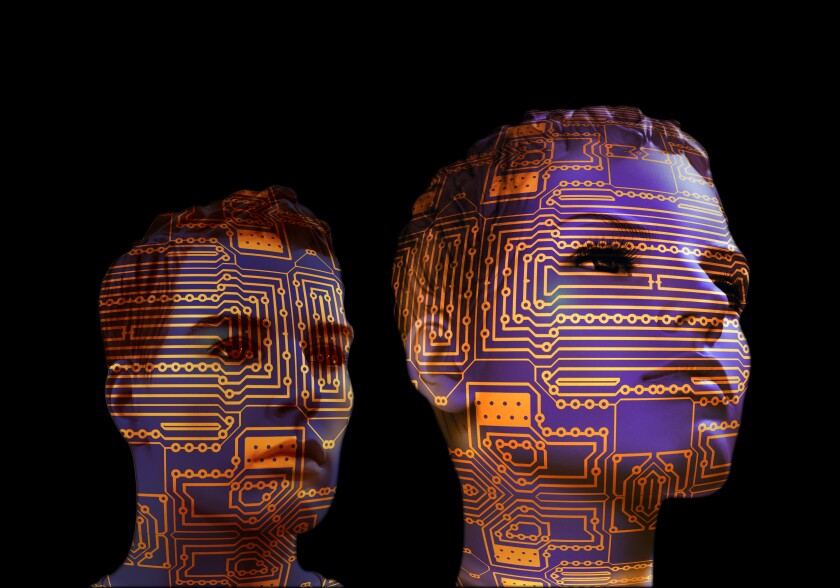The earning capacity of celebrities is not limited to products or services that they endorse or how well the audience receives their shows, movies and other forms of artistic expression, instead extending to all unique aspects of a person's identity or "persona." This includes the celebrity’s name, voice, image, likeness, reputation, and other recognizable features that can easily be attributed to them and can be monetised.
The growing popularity of generative AI (GAI) software that can scour and compile data, effortlessly access and replicate existing identities and creative works is an increasing concern among artists considering the creative expression of their persona.
It is widely acknowledged that AI with adequate data and correct training can create:
Near perfect replications of a celebrity's persona with ease;
A near-perfect substitute for an author's persona; and
Content that would be difficult for consumers to differentiate from official appearances or endorsements.
Indian actor Anil Kapoor seeks protection of his personality rights
Recently, the famous Bollywood actor Anil Kapoor (AK) approached the Delhi High Court seeking protection of his name, voice, persona, signature, and other personal attributes from misuse by unauthorised entities. Among other forms of misuse alleged in the lawsuit brought against certain named and unnamed entities (pleaded as John Doe), a specific allegation was made that AI tools are being used to produce images and videos that are derogatory both to AK and other actresses.
While granting an injunction, the court noted that modern technological tools, including AI, make it possible for any illegal and unauthorised user to produce or imitate any celebrity's persona. Celebrities enjoy the right of privacy and do not wish that their image, voice, or likeness is portrayed in a dark or grim manner, as portrayed on porn websites. The materials evidence that AK's image is being morphed along with other actresses in videos and images that are offensive or derogatory to him and to other third-party celebrities and actresses. The court observed undoubtedly AK's rights deserve to be protected for his own sake and his family and friends, who would not like to see his name, image, and persona being misused for such tarnishing and negative use.
The court thus restrained the defendants from utilising AK's name, likeness, image, voice, personality, or any other aspects of his persona to create any merchandise, ringtones. The court also forbid the defendants from in any manner misusing the said attributes using technological tools such as AI, machine learning, deep fakes, face morphing or GIFs, either for monetary gain or commercial purposes until the next date of hearing. The court also directed the domain registrars to block and suspend the domains www.Anilkapoor.com, www.anilkapoor.in, and www.anilkapoor.net.
Tom Hanks warns of an AI-generated version of him used in an advertisement
Tom Hanks warned his followers on Instagram earlier this week by posting: "BEWARE!! There's a video out there promoting some dental plan with an AI version of me. I have nothing to do with it." The warning was posted on a backdrop with the screenshot of a computer-generated image of the video clip. The warning is not an isolated one. With AI technology in the last six months becoming increasingly mature, Hollywood actors are concerned that the use of AI in generating unapproved likenesses of actors strikes at the root of their career and their earnings. The concern around AI-generated deep-fakes has had world leaders, policymakers, and law enforcement echoing the dangers of the technology and sounding the alarm that the space must be regulated.
Who owns the rights to the works created by GAI?
GAI systems, as is widely known, are trained on scores of prior works from which the AI learns how to create artistic outputs. This raises questions about ownership and authorship. Should the artists whose art was used to train the models be compensated? Who owns the images that AI systems produce? Is the process of fine-tuning prompts for generative AI a form of authentic creative expression? Currently, most IP offices are refusing protection to AI-generated works, though the artist may have argued that the system was part of the creative process.
To sum up
GAI presents promises and challenges, both artistic and legal, to the right of publicity. On the one hand, it may increase artists' earning potential by allowing them to license or contract pieces of their persona. On the other hand, it may decrease and even damage a creative's earning potential through misappropriation.












